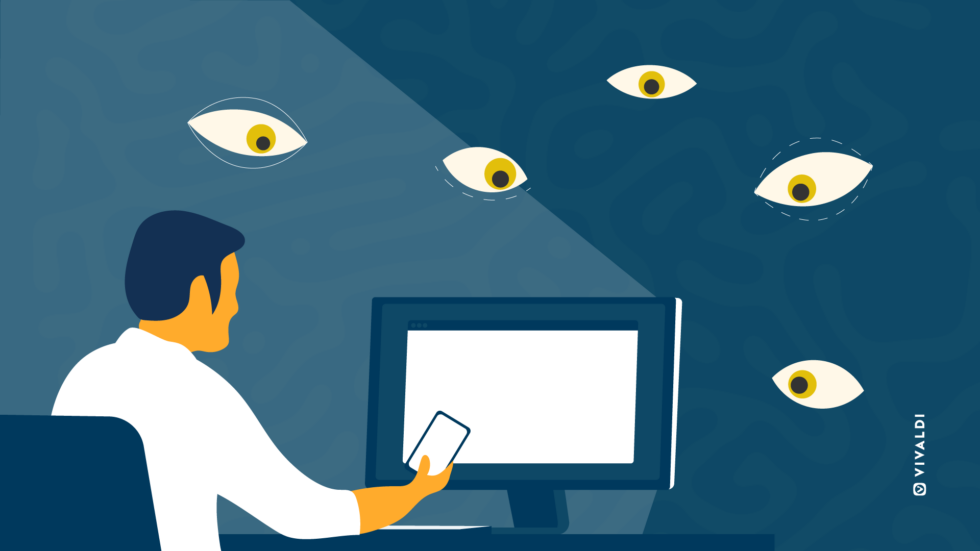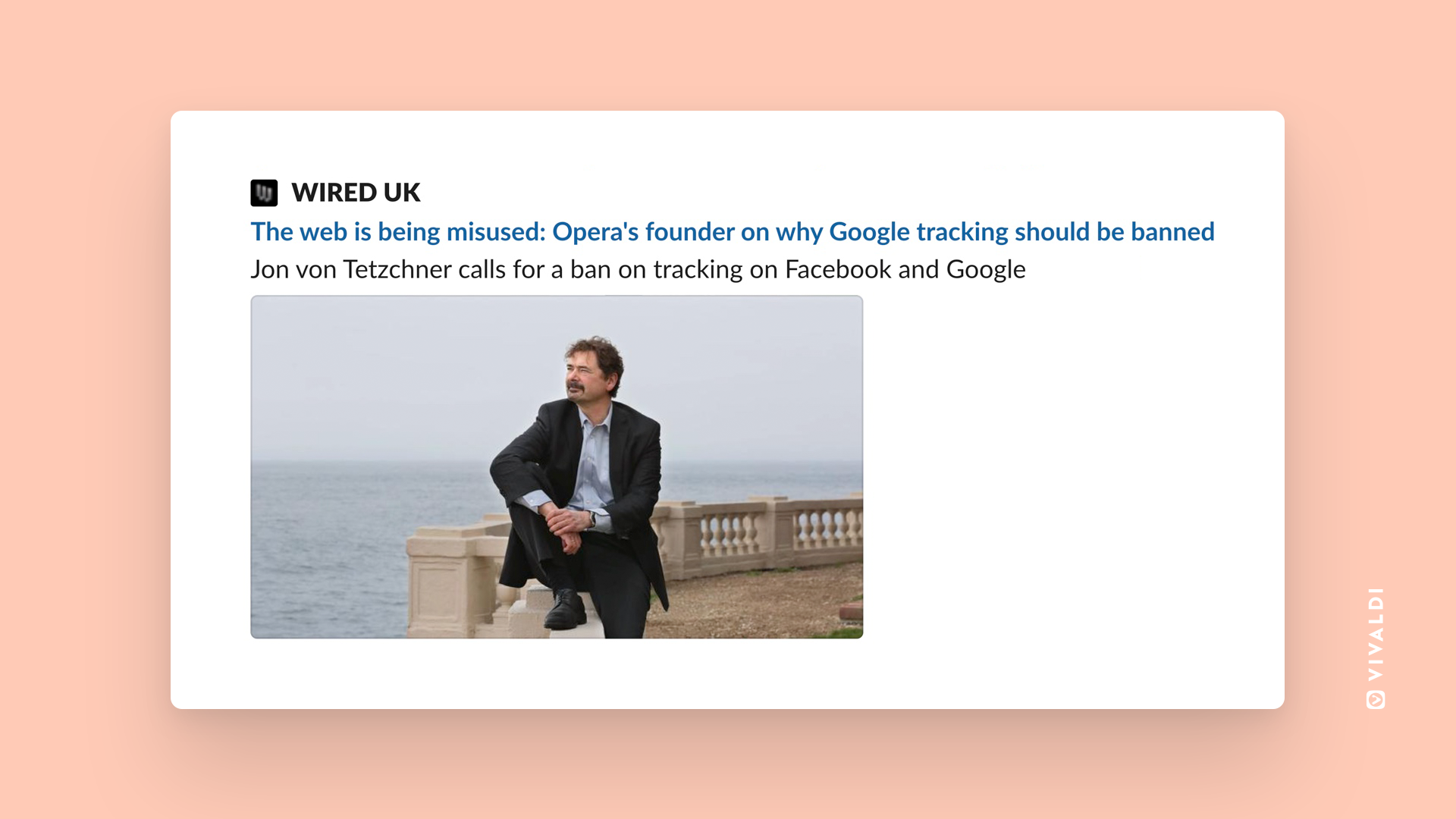
For years, the giants of the internet industry have tried to think for us. They said they needed our data in order for us to receive “tailored ads”. At the same time, they convinced everyone that they were collecting information about us in order to be able to provide quality service for free. Unfortunately, they were able to convince many people to accept these false rules of the game.
I wonder if they could have done the same if they honestly said they would be offering us "surveillance-based advertising" rather than so-called "tailored advertising"?
Today, many users understand the huge amount of data that companies collect about them. Perhaps all the increasing cases of data leaks have forced attention to this situation, but in reality everything is much more serious. The fact is that collecting user data harms not only specific people, but society as a whole.
Simply put, the toxic business model of Internet giant companies, based on surveillance of users, undermines the principles of democracy. The monopolists had many opportunities to change their behavior, but they did not take advantage of them. Now the time has come to introduce regulation of their activities.
The Norwegian Consumer Council takes the right step
Fortunately for all of us, government agencies have begun to take action to improve surveillance-based advertising and its privacy concerns.
For example, in April of this year, the European privacy authorities called for a ban on the use of facial recognition technology in public places - a good sign that the statement “privacy is dead” is no longer an axiom.
The Norwegian Consumer Council published a comprehensive document last week , which clearly states that surveillance-based advertising has gone too far. 54 organizations around the world supported the Council's call to ban this practice. I recommend that everyone read this report in its entirety to assess the magnitude of the problem and how you can begin to address it.
Specifically, the document details examples of how industry giants have championed and defended their user-tracking practices.
These examples describe various problems caused by surveillance advertising, including privacy and data protection breaches, opaque business models, massive manipulation and discrimination, serious security risks, and more, including fraud and other criminal activities.
All of this clearly shows the threat the dominant surveillance model today poses to consumers themselves, to a democratic society, to the media, and even to advertising companies who think they are making some kind of business gain in this way.
The threat is becoming serious enough to justify a ban on this practice.
In support of this Council position, the document verifies many of the industry giants' claims about user attitudes towards surveillance-based advertising and draws the following conclusions:
« , , . , YouGov , , , . , .»
After the publication of this important document, many Norwegian politicians were directly asked for their opinion on the issue under discussion. And for now, they are all in favor of banning surveillance-based advertising. We hope that politicians in other countries will also take action. I believe that they should and will do so if they feel our support for their right actions.
Together, we can help make a difference to free the internet from an increasing number of privacy breaches, invasions of privacy, misrepresentation, and apparent exploitation of consumers for their own gain.
Vivaldi has always opposed surveillance-based methods
For many years, we have stated that surveillance-based advertising should be banned. We constantly oppose the unethical practices of the giants by creating our own services and products. This has always been important to us.
It is good to see that the discussion of this issue is gaining momentum both in the field of politics and beyond. And I am glad that others are speaking so clearly and openly.
I have devoted most of my life to the Internet. And, like many others, I am concerned about how the worldwide web is developing and where it is heading . For many years, the internet has been synonymous with free speech, helping to improve communication and develop democracy around the world. Unfortunately, the picture has changed dramatically for the worse.

In an interview with the publication Wired a few years ago, I raised concerns about internet misuse and called for a ban on personalized ads. But we are still being watched every minute. Technologies that penetrate deeply into our lives follow our every step .
I am convinced that there is simply no reason for companies to collect huge amounts of data about their customers. They can and should keep any data they have of their users secure. They can and should avoid using this data for any purpose other than providing a service. It goes without saying that they should not use user profiles for advertising purposes. These profiles shouldn't exist at all.
It just isn't right.
Giants make billions, society pays for it
By now, industrial monsters have amassed incredible power through access to a treasure trove of user data. When Google, Facebook and other players were looking for new ways to monetize their services and satisfy investors' desires, they couldn't resist. The data was readily available, so why not collect it? Why not use them to generate even more revenue, such as by offering targeted advertising? Gradually, the tactics of collecting and using data expanded until these companies began to collect information about every step of each user of the network. But the bigger problem is that these companies not only collect data, but also provide the ability to use it to third parties who are willing to pay for it.
Companies have always had access to information about their customers. Your electrician will probably be able to gather a lot of information about you and your family by visiting your home. Telecommunications companies could listen to your conversations. Your postman could read your mail. These companies and service providers do not do this because it would be wrong.
The industry giants don't have such stupid prejudices. For them, information is a source of income, and no rules of decency or ethical standards can prevent this. Until now, by ignoring both, these companies are reaping huge advantages that they use to kill competition and change entire industries.
Don't believe that "this is the only way"
The challenge for the giants has always been to convince us that collecting user data is a necessary and necessary payment for providing a "free" service. But in fact, the Internet was fine even before the giants began collecting data about us.
These companies are trying to convince us that their services will become prohibitively expensive if they don't collect data. This is a lie. They will simply receive a little less profit, but ordinary advertising will bring them a very tangible income.
Moreover, by providing the service “for free,” in exchange for user data, they impede free competition from other market participants. As long as the consumer is a commodity, more ethical companies will be at a perceived disadvantage in reducing user choices. In other words, users and society as a whole are losing much more than they receive from their data payments for using the services.
Companies small and large often argue that the industry cannot survive without collecting user data. But in fact, advertising existed on the web long before the technology of user tracking appeared. And the industry can survive perfectly well without surveillance.
We can cure the internet
Is there hope?
It seems that the world has begun to take the problem much more seriously. And, perhaps, we will soon see positive shifts. Many people doubt that giants can be stopped, but nothing is impossible. We know examples of how some things gradually began to be regulated for the common good. The Council's article gives an example of asbestos and, frankly, the comparison is very accurate.
At the time of its invention, asbestos was considered a wonderful material that could protect homes, schools, and industrial enterprises from fires. Decades passed before people realized the threat to healthcarried by asbestos. The complete ban on what was considered critical, necessary, and without which it was impossible to imagine human life, led to the invention of safer materials that perform the same protective function. And ultimately it improved the lives of those who might be harmed in the long run.
Likewise, advertising based on user tracking is dangerous to the health of the Internet and society as a whole.
Banning such advertising methods will help to invent new business models that do not require tracking of users in order to make a profit.
Ultimately, this will help accelerate the development of technologies that respect both consumer rights and human rights, and in the long term can restore consumer confidence in digital services.
This madness must end
The current situation is scary. More and more data about each of us is being collected and used at lightning speed.
Realizing that users are becoming more privacy conscious, the giants are getting more creative to keep data from drying out. For example, initiatives like Google's FLOC , which bills itself as a revolutionary "privacy technology" but is actually designed to collect user data for Google's benefit - and bypass browser settings that might interfere with it.
We need our representatives to focus on these issues for the benefit of the people. If you leave everything unchanged, it will be a losing situation for us, our economy and the whole society. Radical steps are needed to safeguard our privacy in the long term, restore competition on the Internet, and repair the damage caused by these unethical practices.
Prevent unnecessary collection of user data. Stop creating personal profiles of people. Opt out of surveillance-based advertising.